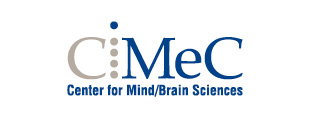We study the effects of theory-driven behavioral treatments alone versus those of the combination of the same treatments with neuromodulation/neurostimulation on the recovery of cognitive deficits in adults with chronic damage (e.g., lexical vs semantic deficits of noun processing; damage to the processing of verbs/actions as isolated words and in minimal syntactic contexts; etc.) or in neurodegenerative pathologies (e.g.,Mild cognitive impairments). Moreover, we study the effects of cognitive treatment on movement disorders in subjects with extrapyramidal diseases.
Finally, we investigate the neural substrate of recovery from these disorders. The results of these projects will have obvious implications for the treatment of neurocognitive impairments. From the clinical standpoint, they will result in the opportunity to design individualized therapy protocols for persons with specific deficits like aphasia, for example, based on a combination of biological and functional markers, and leading to assign each subject to the protocol that best suits his/her specific needs. From the theoretical perspective, they will help greatly constrain hypotheses on the neuroplasticity mechanisms underlying recovery. Products of these projects will consist of treatment packages, possibly implemented on mobile devices, and of machine learning-based algorithms for the prognosis of subjects with acquired language disorders.

